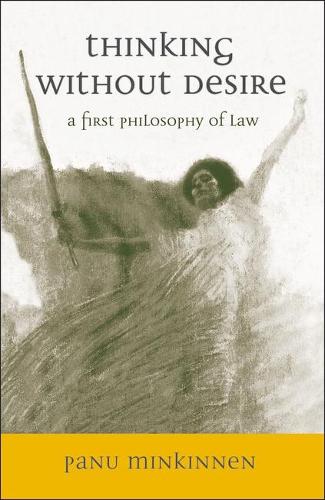
Thinking without Desire: A First Philosophy of Law
(Hardback)
Publishing Details
Thinking without Desire: A First Philosophy of Law
By (Author) Panu Minkkinen
Bloomsbury Publishing PLC
Hart Publishing
1st September 1999
United Kingdom
Classifications
Tertiary Education
Non Fiction
340.1
Physical Properties
Hardback
256
Width 138mm, Height 216mm, Spine 20mm
Description
An attempt to evaluate the reception of continental philosophy (such as phenomenology, hermeneutics and deconstruction) with mainstream jurisprudence. The book claims that the reduction of philosophy to social theory can only be accomplished by impoverishing the impetus of philosophical thinking and, consequently, by transforming critique into criticism, and the philosophy of law into legal theory. The response developed in the book is the creation of a metaphysical understanding of law or, in other words, what Aristotle called a "first philosophy". In addition to philosophy proper - the classics of antiquity, the great German philosophers, contemporary French thinking - it covers a range of jurisprudential literature. These include the neo-Kantian philosophers of law whose thinking is allegedly at the root of legal positivism, but special emphasis is also given to "existential" philosophers of law deeply inspired by the hermeneutical phenomenology of Martin Heidegger. Lastly, the book encourages specifically philosophical approaches in law to the thinking of French contemporaries whose work has inspired critical legal scholarship.
Author Bio
Panu Minkkinnen is a Lecturer at the University of Helsinki.
